 W
WThe Sylhet uprising of 1782, also known as the Muharram Rebellion, took place in early December against the East India Company by the Bengali Muslims led by the Pirzada of Sylhet and his two brothers, Syed Muhammad Hadi and Syed Muhammad Mahdi. It was one of the first ever anti-British movement in the subcontinent. The main battle took place in the Mughal-built Sylhet Shahi Eidgah and its surrounding hills.
 W
WThe 1916 Cochinchina uprising was a series of defiant protests and attempted revolts in February against the French colonisation of southern Vietnam, which had been the colony of Cochinchina since 1867.
 W
WThe 1936–1939 Arab revolt in Palestine, later came to be known as "The Great Revolt", was a nationalist uprising by Palestinian Arabs in Mandatory Palestine against the British administration of the Palestine Mandate, demanding Arab independence and the end of the policy of open-ended Jewish immigration and land purchases with the stated goal of establishing a "Jewish National Home". The dissent was directly influenced by the Qassamite rebellion, following the killing of Sheikh Izz ad-Din al-Qassam in 1935, as well as the declaration by Hajj Amin al-Husseini of 16 May 1936 as 'Palestine Day' and calling for a General Strike. The revolt was branded by many in the Jewish Yishuv as "immoral and terroristic", often comparing it to fascism and nazism. Ben Gurion, however, described Arab causes as fear of growing Jewish economic power, opposition to mass Jewish immigration and fear of the English identification with Zionism.
 W
WThe 8888 Nationwide Popular Pro-Democracy Protests, also known as the 8-8-88 Uprisings, or the People Power Uprising, the People's Democracy Movement and the 1988 Uprising, were a series of nationwide protests, marches and civil unrest in Burma (Myanmar) that peaked in August 1988. Key events occurred on 8 August 1988 and therefore it is known as the 8888 Uprising. The protests began as a student movement and were organised largely by university students at the Rangoon Arts and Sciences University and the Rangoon Institute of Technology (RIT).
 W
WThe Arakan Rohingya National Organisation (ARNO) is a Rohingya political organisation based in London, United Kingdom.
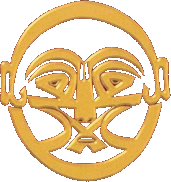 W
WThe Babai revolt was an insurrection in the Sultanate of Rûm in the thirteenth century
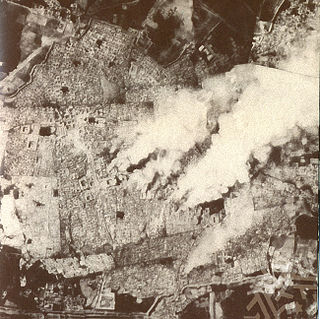 W
WThe Basmachi movement was a decentralized movement which undertook a protracted uprising against Russian Imperial and Soviet rule by the Muslim peoples of Central Asia. The movement's roots lay in the anti-conscription violence of 1916 that erupted when the Russian Empire began to draft Muslims for army service during World War I. In the months following the October 1917 Revolution the Bolsheviks seized power in many parts of the Russian Empire and the Russian Civil War began. Turkestani Muslim political movements attempted to form an autonomous government in the city of Kokand, in the Fergana Valley. The Bolsheviks launched an assault on Kokand in February 1918 and carried out a general massacre of up to 25,000 people. The massacre rallied support to the Basmachi movements who waged a guerrilla and conventional war that seized control of large parts of the Fergana Valley and much of Turkestan. The group's notable leaders were Enver Pasha and, later, Ibrahim Bek.
 W
WThe Brunei revolt was a December 1962 insurrection in the British protectorate of Brunei by opponents of its monarchy and its proposed inclusion in the Federation of Malaysia. The insurgents were members of the TNKU, a militia supplied by Indonesia and linked to the leftwing Brunei People's Party (BPP), which favoured a North Borneo Federation. The TNKU began co-ordinated attacks on the oil town of Seria, on police stations, and on government facilities around the protectorate. The revolt began to break down within hours, having failed to achieve key objectives such as the capture of Brunei town and Sultan Omar Ali Saifuddien III. The revolt influenced the Sultan's 1963 decision not to join Malaysia. It is seen as one of the first stages of the Indonesia–Malaysia confrontation.
 W
WThe Buddhist Uprising of 1966 was a period of civil and military unrest in South Vietnam, largely focused in the I Corps area in the north of the country in central Vietnam. The area is a heartland of Vietnamese Buddhism, and at the time, activist Buddhist monks and civilians were at the forefront of opposition to a series of military juntas that had been ruling the nation, as well as prominently questioning the escalation of the Vietnam War.
 W
WThis article covers the Afghan history from the Soviet withdrawal from Afghanistan on 15 February 1989 until 27 April 1992, the day after the proclamation of the Peshawar Accords proclaiming a new interim Afghan government which was supposed to start serving on 28 April 1992.
 W
WThe Communist insurgency in Malaysia, also known as the Second Malayan Emergency, was an armed conflict which occurred in Malaysia from 1968 to 1989, between the Malayan Communist Party (MCP) and Malaysian federal security forces.
 W
WThe Communist insurgency in Sarawak occurred in Malaysia from 1962 to 1990, and involved the North Kalimantan Communist Party and the Malaysian Government. It was one of the two Communist insurgencies to challenge the former British colony of Malaysia during the Cold War. As with the earlier Malayan Emergency (1948–1960), the Sarawak Communist insurgents were predominantly ethnic Chinese, who opposed to British rule over Sarawak and later opposed the merger of the state into the newly created Federation of Malaysia. The insurgency was triggered by the 1962 Brunei Revolt, which had been instigated by the left-wing Brunei People's Party in opposition to the proposed formation of Malaysia.
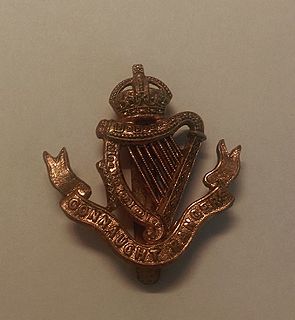 W
WThe Connaught Rangers were an Irish line infantry regiment of the British Army formed by the amalgamation of the 88th Regiment of Foot and the 94th Regiment of Foot in July 1881. Between the time of its formation and Irish independence, it was one of eight Irish regiments raised largely in Ireland. Its home depot was in Galway. It was disbanded following the establishment of the independent Irish Free State in 1922, along with the other five regiments that had their traditional recruiting grounds in the counties of the new state.
 W
WThe February 28 incident or the February 28 massacre, also known as the 228 incident, was an anti-government uprising in Taiwan that was violently suppressed by the Kuomintang-led Republic of China government, which killed thousands of civilians beginning on February 28, 1947. The number of Taiwanese deaths from the incident and massacre was estimated to be between 5,000 and 28,000. The massacre marked the beginning of the White Terror, in which tens of thousands of other Taiwanese went missing, died or were imprisoned. The incident is one of the most important events in Taiwan's modern history and was a critical impetus for the Taiwan independence movement.
 W
WThe First Intifada, or First Palestinian Intifada, was a sustained series of Palestinian protests, and in some cases violent riots, against the Israeli occupation of the West Bank and Gaza that had begun twenty years prior, in 1967. The intifada lasted from December 1987 until the Madrid Conference in 1991, though some date its conclusion to 1993, with the signing of the Oslo Accords.
 W
WThe First Jewish–Roman War, sometimes called the Great Revolt, or The Jewish War, was the first of three major rebellions by the Jews against the Roman Empire, fought in Roman-controlled Judea, resulting in the destruction of Jewish towns, the displacement of its people and the appropriation of land for Roman military use, besides the destruction of the Jewish Temple and polity.
 W
WThe Indian Rebellion of 1857 was a major, but ultimately unsuccessful, uprising in India in 1857–58 against the rule of the British East India Company, which functioned as a sovereign power on behalf of the British Crown. The rebellion began on 10 May 1857 in the form of a mutiny of sepoys of the Company's army in the garrison town of Meerut, 40 mi (64 km) northeast of Delhi. It then erupted into other mutinies and civilian rebellions chiefly in the upper Gangetic plain and central India, though incidents of revolt also occurred farther north and east. The rebellion posed a considerable threat to British power in that region, and was contained only with the rebels' defeat in Gwalior on 20 June 1858. On 1 November 1858, the British granted amnesty to all rebels not involved in murder, though they did not declare the hostilities to have formally ended until 8 July 1859. Its name is contested, and it is variously described as the Sepoy Mutiny, the Indian Mutiny, the Great Rebellion, the Revolt of 1857, the Indian Insurrection, and the First War of Independence.
 W
WThe Islamic Emirate of Afghanistan was a totalitarian Islamic state established in September 1996 when the Taliban began their rule of Afghanistan after the fall of Kabul. At its peak, the Taliban established control over approximately 90% of the country, whereas remaining parts of the country in the northeast were held by the Northern Alliance, who maintained broad international recognition as a continuation of the Islamic State of Afghanistan. After the September 11 attacks and subsequent United States-backed war on terror, international opposition to the regime drastically increased, with diplomatic recognition from the United Arab Emirates, and Pakistan being rescinded. The Islamic Emirate ceased to exist on 17 December 2001, after being overthrown by the Northern Alliance, which had been bolstered by a US-led invasion of the country.
 W
WThe Jeju uprising was an uprising that occurred on Jeju Island in South Korea from April 1948 to May 1949. Residents of Jeju opposed to the Division of Korea had protested and had been on a general strike since 1947 against elections scheduled by the United Nations Temporary Commission on Korea (UNTCOK) to be held only in the territory controlled by the United States Army Military Government in Korea. The Workers' Party of South Korea and its supporters launched an anti-imperialist, communist-linked insurgency in April 1948, attacking the police, and Northwest Youth League members stationed on Jeju mobilized to violently suppress the protests. The First Republic of Korea under President Syngman Rhee escalated the suppression of the uprising from August 1948, declaring martial law in November and beginning an "eradication campaign" against rebel forces in the rural areas of Jeju in March 1949, defeating them within two months. Many rebel veterans and suspected sympathizers were later killed upon the outbreak of the Korean War in June 1950, and the existence of the Jeju uprising was officially censored and repressed in South Korea for several decades.
 W
WThe Khmer People's National Liberation Armed Forces (KPNLAF) was the military component of the Khmer People's National Liberation Front (KPNLF) a political front organized in 1979 in opposition to the Vietnamese-installed People's Republic of Kampuchea (PRK) regime in Cambodia. The KPNLAF was loyal to Son Sann, a former Prime Minister under Prince Norodom Sihanouk and the founder of the KPNLF political movement.
 W
WThe Khmer People's National Liberation Front was a political front organized in 1979 in opposition to the Vietnamese-installed People's Republic of Kampuchea (PRK) regime in Cambodia. The 200,000 Vietnamese troops supporting the PRK, as well as Khmer Rouge defectors, had ousted the brutal Democratic Kampuchea regime of Pol Pot, and were initially welcomed by the majority of Cambodians as liberators. Some Khmer, though, recalled the two countries' historical rivalry and feared that the Vietnamese would attempt to subjugate the country, and began to oppose their military presence. Members of the KPNLF supported this view.
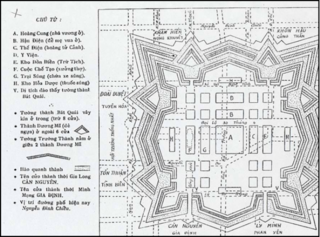 W
WThe Lê Văn Khôi revolt was an important revolt in 19th-century Vietnam, in which southern Vietnamese, Vietnamese Catholics, French Catholic missionaries and Chinese settlers under the leadership of Lê Văn Khôi opposed the Imperial rule of Emperor Minh Mạng.
 W
WThe Maccabean Revolt was a Jewish rebellion, lasting from 167 to 160 BCE, led by the Maccabees against the Seleucid Empire and the Hellenistic influence on Jewish life.
 W
WThe Great Syrian Revolt or Great Druze Revolt (1925–1927) was a general uprising across Mandatory Syria and Lebanon aimed at getting rid of the French, who had been in control of the region since the end of World War I. The uprising was not centrally coordinated; rather, it was attempted by multiple factions – among them Sunni, Druze, Alawite, Christian, and Shia – with the common goal of ending French rule. The revolt was ultimately put down by French forces.
 W
WThe Mandor rebellion in 1884 and 1885, also called the Third Kongsi War, was an uprising of ethnic Chinese, helped by the Dayaks, against the Dutch East Indies government.
 W
WThe Matale rebellion, also known as the Rebellion of 1848, took place in Ceylon against the British colonial government under Governor Lord Torrington, 7th Viscount Torrington. It marked a transition from the classic feudal form of anti-colonial revolt to modern independence struggles. It was fundamentally a peasant revolt.
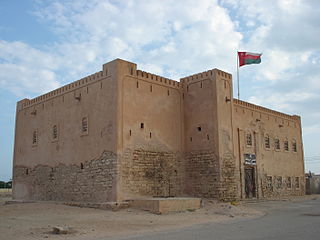 W
WThe Battle of Mirbat took place on 19 July 1972 during the Dhofar Rebellion in Oman, which was supported by Communist guerrillas from South Yemen. Britain assisted the Omani government by sending elements of its Special Air Service both to train soldiers and compete against the Popular Front for the Liberation of the Occupied Arabian Gulf (PFLOAG) guerrillas for the "hearts and minds" of the Omani people.
 W
WThe Moro Rebellion (1899–1913) was an armed conflict between the Moro people and the United States military during the Philippine–American War.
 W
WThe Musha Incident (Chinese and Japanese: 霧社事件; pinyin: Wùshè Shìjiàn; Wade–Giles: Wu4-she4 Shih4-chien4; rōmaji: Musha Jiken; Pe̍h-ōe-jī: Bū-siā Sū-kiāⁿ), also known as the Wushe Rebellion and several other similar names, began in October 1930 and was the last major uprising against colonial Japanese forces in Japanese Taiwan. In response to long-term oppression by Japanese authorities, the Seediq Indigenous group in Musha (Wushe) attacked the village, killing over 130 Japanese. In response, the Japanese led a relentless counter-attack, killing over 600 Seediq in retaliation. The handling of the incident by the Japanese authorities was strongly criticised, leading to many changes in Aboriginal policy.
 W
WThe Paika Rebellion, also called the Paika Bidroha. It was an armed rebellion against the British East India Company's rule in 1817.
 W
WBersatu, also referred to as the Patani Malays People's Consultative Council was an umbrella group of separatist organisations of the predominantly Muslim and Malay provinces of Southern Thailand ("Patani").
 W
WPhú Riềng Đỏ or the Red Phú Riềng was a communist-instigated strike that took place in Michelin's Thuân-Loï rubber plantation near Phú Riềng in the Biên Hòa Province of Cochinchina on 4 February 1930. Most of the plantation labourers were peasants from Tonkin and Annam driven by poverty to seek livelihood in southern Vietnam. Working and living conditions on the plantations, however, were harsh and this situation was capitalised by the communists to launch the strike. Although the strike lasted only about a week, the unfolding of events at Phú Riềng Đỏ was significant as it served as a harbinger for important tactical and strategic considerations for other communist-led uprisings that followed later in the year. Hence, while the communists may not seem to have achieved much from Phú Riềng Đỏ, it actually offered them some valuable first lessons in their anti-colonial struggle.
 W
WThe Rohingya conflict is an ongoing conflict in the northern part of Myanmar's Rakhine State, characterised by sectarian violence between the Rohingya Muslim and Rakhine Buddhist communities, a military crackdown on Rohingya civilians by Myanmar's security forces, and militant attacks by Rohingya insurgents in Buthidaung, Maungdaw, and Rathedaung Townships, which border Bangladesh.
 W
WThe Thái Nguyên uprising in 1917 has been described as the "largest and most destructive" anti-colonial rebellion in French Indochina between the Pacification of Tonkin in the 1880s and the Nghe-Tinh Revolt of 1930–31. On 30 August 1917, an eclectic band of political prisoners, common criminals and insubordinate prison guards mutinied at the Thai Nguyen Penitentiary, the largest one in the region. The rebels came from over thirty provinces and according to estimates, involved at some point roughly 300 civilians, 200 ex-prisoners and 130 prison guards.
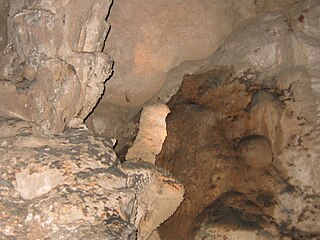 W
WThe Communist insurgency in Thailand was a guerrilla war lasting from 1965 until 1983, fought mainly by the Communist Party of Thailand (CPT) and the government of Thailand. The war declined in 1980 following the declaration of an amnesty and by 1983 the CPT had abandoned the insurgency.
 W
WThe Varendra rebellion means the revolt against King Mahipala II led by Divya. The Kaivarta were able to capture Varendra by this rebellion. Later on, in 1082 CE, King Rampala was succeed to recapture his fatherland Varendra by defeating Vim with the assistance of neighbouring vassals. Thus, the first revolt of rebellious Kaibarta came to an end.